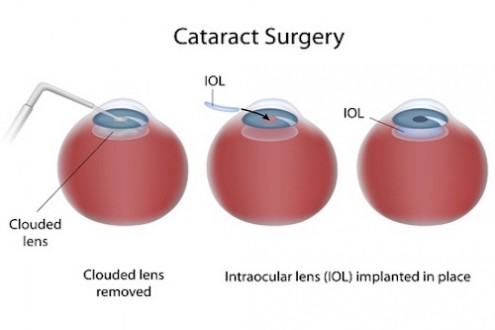A cataract is a clouding of the normally clear lens of your eye. Cataracts are a leading cause of blindness but also completely and easily treatable.
According to the World Health Organization (WHO), most cataracts are related to aging, but they may also develop after an injury or due to inflammation or disease.
Today's cataract patient is often in her early to mid 60s and has decided to take action after the frustration of a lifetime of corrective vision wear, needing to wear glasses over contacts, night vision becoming difficult, and colors seeming off. These are people who are quite often still working, physically active, and attached to technology.
One of the most common treatments for cataracts is cataract surgery. Cataract surgery is one of the most common procedures in the U.S., with more than three million surgeries done each year.
How do you know when you should have cataract surgery?
William L. Soscia, MD, joins Melanie Cole, MS, to discuss everything you need to know about having cataract surgery.
- Notice
- Lack of access rights - File '/images/The_Jay_Cardiello_Show/William_L_Soscia.jpg'

Everything You Need to Know About Cataract Surgery
From the Show: Health Radio
Summary: How do you know when to have cataract surgery?
Guest Bio: William L. Soscia, MD
 Dr. William L. Soscia is a graduate of the U.S. Military Academy at West Point. He is a decorated Army officer, serving in the Persian Gulf War in Iraq. Following his military career, Dr. Soscia was admitted to the University of Florida College of Medicine where he graduated with honors in research and was elected to the Alpha Omega Alpha Medical Honor Society.
Dr. William L. Soscia is a graduate of the U.S. Military Academy at West Point. He is a decorated Army officer, serving in the Persian Gulf War in Iraq. Following his military career, Dr. Soscia was admitted to the University of Florida College of Medicine where he graduated with honors in research and was elected to the Alpha Omega Alpha Medical Honor Society.Dr. Soscia has extensive experience in cataract and lens replacement surgery with advanced premium intraocular lenses. He also is experienced in refractive procedures such as LASIK, CK and refractive lens exchange. Dr. Soscia has published papers and has given many lectures at national meetings on topics in refractive surgery as well as cataract surgery and intraocular lens technology.
He also serves as a Clinical Assistant Professor at LECOM.
Board-Certified by the American Board of Ophthalmology, Dr. Soscia is a member of the American Medical Association, Florida Medical Association, Manatee Medical Society, the American Academy of Ophthalmology and the American Society of Cataract and Refractive Surgery (ASCRS).
Dr. Soscia lives in Bradenton with his wife, Karen, and their two daughters, Sarah and Maria. He is dedicated to practicing Kung Fu, studying the Northern Shaolin-Mi Jong style. He also enjoys weight lifting, running and fishing.
- Guest Website: Center for Sight
Tagged under
More from this show . . .
Preventing Common Athletic InjuriesIncreased Birthrate for Twins May Cause Premature Birth
Prev
Next
Preventing Common Athletic InjuriesIncreased Birthrate for Twins May Cause Premature Birth




